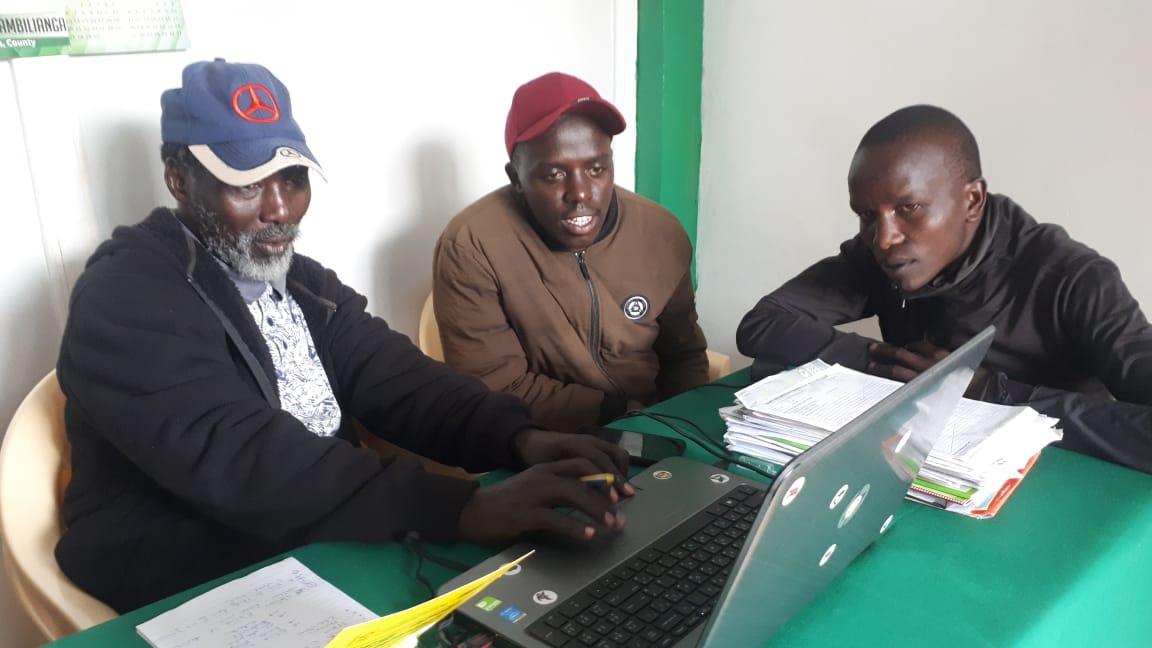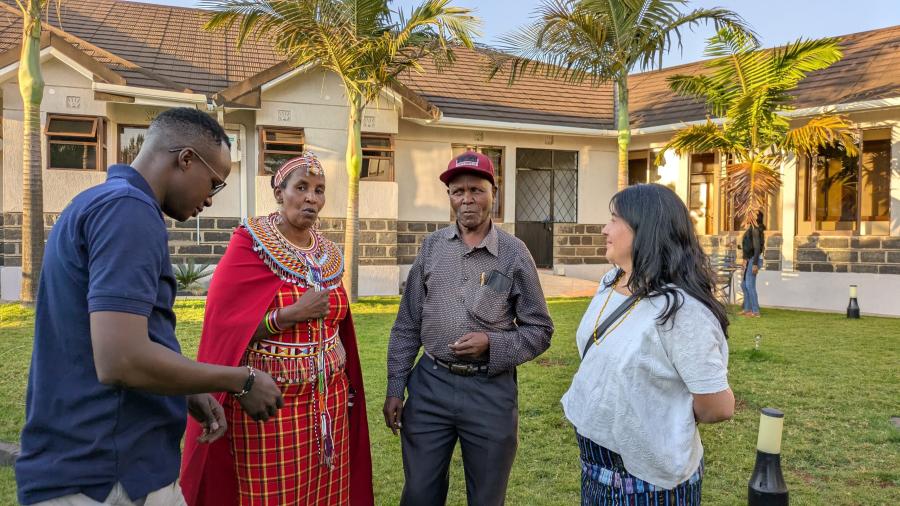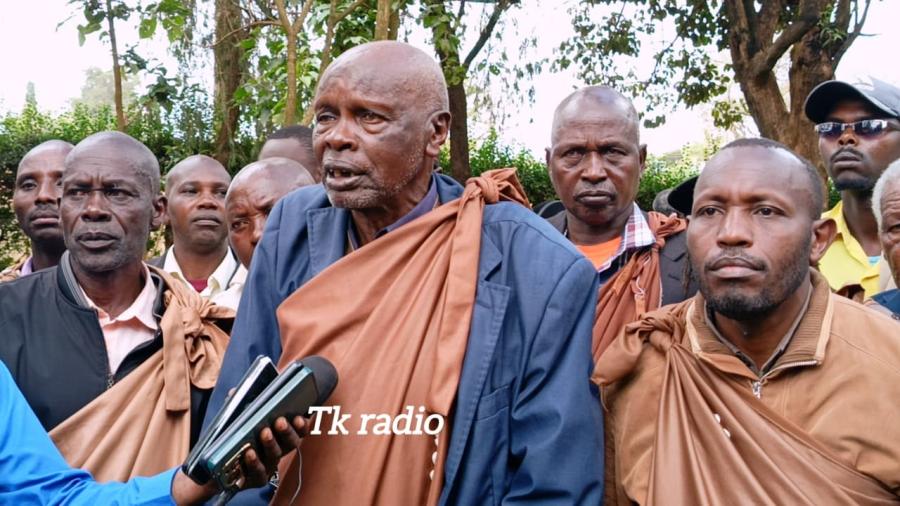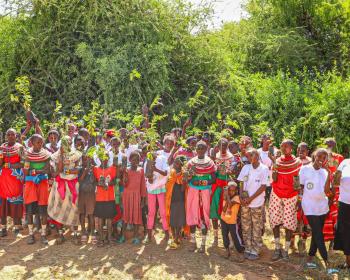
In Kapsokwony, located in Bungoma County, Kenya, lives Emmanuel Kiplimo (Ogiek), an Indigenous young man concerned about his community’s lack of access to education and health services. Emmanuel’s Cultural Survival Indigenous Youth Fellowship focused on community radio production to promote health, education, and gender inclusion. His concerns were rooted in the lack of response from the government. The Kenyan government’s healthcare and education services in the country are not reaching his community.
According to the Universal Declaration on Human Rights Article 26, education is a human right. In Kapsokwony, Ogiek children lack access to education due to poverty, gender inequality, and access to transportation. The low quality of infrastructure creates more obstacles for children; in particular, children with disabilities face even more challenges accessing education because of the lack of adequate accessible infrastructure. Access to healthcare is far from a reality.
Emmanuel’s Youth Fellowship Project’s goal was to use community radio productions at Tulwoob Koony Radio station as a tool to raise awareness about the issues that are important for his community, including issues related to education, hygiene and sanitation, rural development, agriculture, culture, and local government. His vision aimed to promote social cohesion among Indigenous members of his community by involving those with expertise in areas such as domestic violence, conflict resolution, peace building, gender and social inclusion.
Emmanuel completed five radio programs in the Koony language on the topics of agriculture, environment, preservation of natural resources, cultural preservation and storytelling, participatory communication, hygiene and sanitation, local governance, and promotion of accountability and transparency. “What I liked about this project is that it gave us a platform to dig deep into the societal issues within the community and be able to also develop our radio production skills as one way of building the capacity among the Indigenous-owned radio stations,” Emmanuel said, adding, “My future vision for this project is supporting youths volunteering at the radio station through capacity building so that we may have robust competencies to support the community in addressing challenges related to land rights, conservation of natural resources and endangered species, education, governance, and universal health.”
Cultural Survival's Indigenous Youth Fellowship Program supports young Indigenous leaders between the ages of 17-28 who are eager to learn about technology, program development, journalism, community radio, media, and Indigenous Peoples’ rights advocacy. Since 2018, we have awarded 62 fellowships supporting 82 fellows. Fellowships have allowed youth to build capacities in Indigenous rights, Indigenous languages, cultures, and Traditional Knowledge. Youth fellowships are an opportunity to assist Indigenous youth to represent the voices of their communities and bring awareness of local issues to global conversations through their proposed projects while strengthening their cultural identities and leadership.



